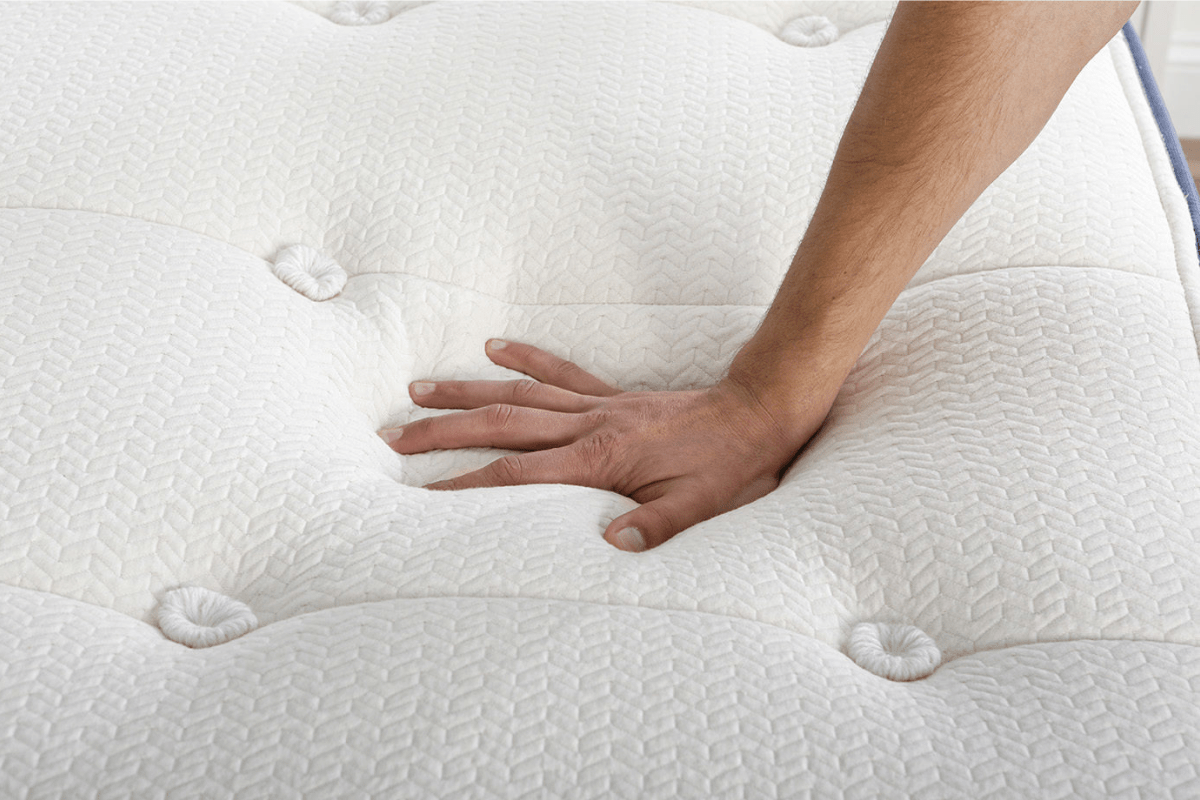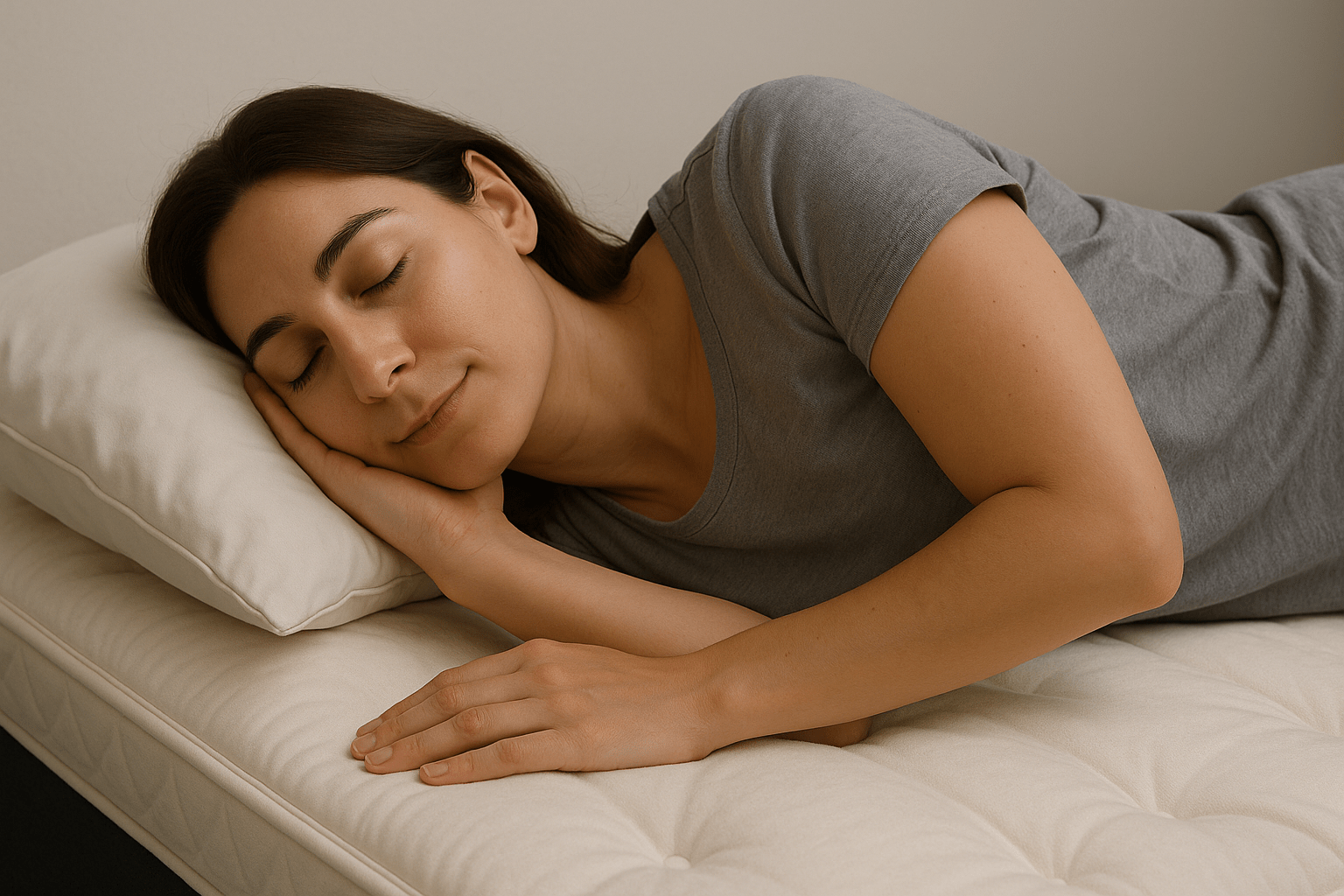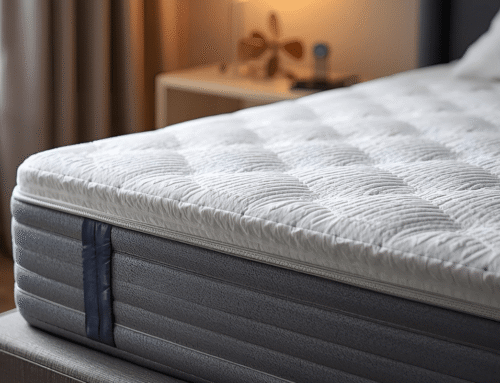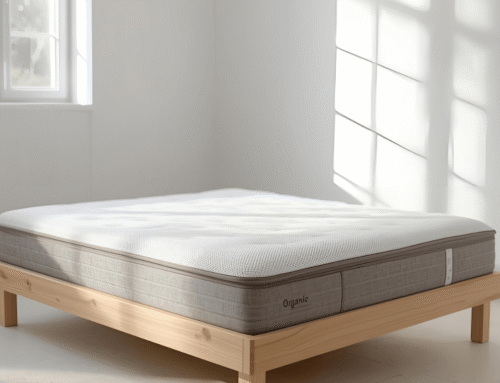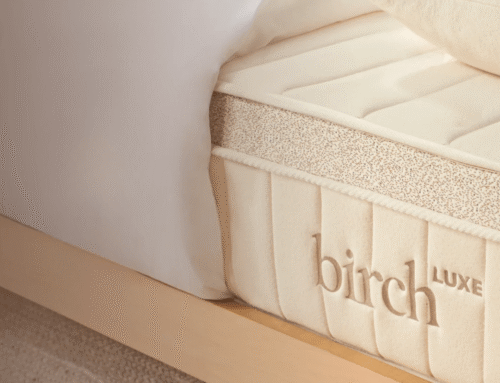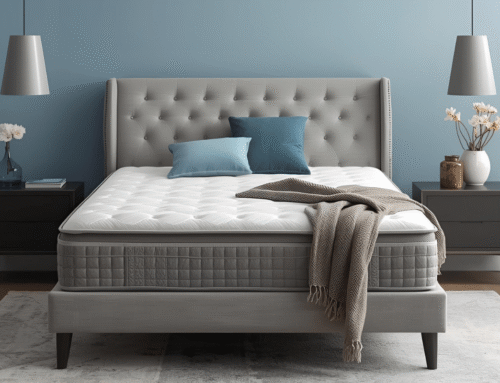If you’ve ever walked into a mattress store or browsed online, chances are you’ve come across the terms plush and soft. At first, they sound like they mean the same thing—but trust me, they’re not. Choosing the right feel can be the difference between a peaceful night’s sleep and tossing and turning until sunrise.
In this post, I’ll walk you through everything you need to know about plush vs soft mattress comfort levels. You’ll learn how each feels, who each one is best for, and how to tell them apart before you buy. Let’s break it all down so YOU can find the perfect fit for your sleep style.
Key Takeaways
- A plush mattress offers a soft, cushiony feel, ideal for side sleepers and those seeking pressure relief on shoulders and hips.
- Soft mattresses provide a deep “sink-in” sensation, suitable for lightweight individuals and those desiring a gentle, enveloping sleep surface.
- Plush mattresses balance softness with support, making them versatile for various sleep positions and preferences.
- Soft mattresses may lack sufficient support for heavier individuals, potentially leading to spinal misalignment and discomfort.
- Choosing between plush and soft mattresses depends on personal comfort preferences, body weight, and sleeping position to ensure restful sleep.

What Does “Plush” Really Mean In Mattresses?
A plush mattress and a pillow top create a luxuriously soft surface that lets your body gently sink in, offering a cradling feel that many sleepers love. But what it means in mattress firmness can be a little more nuanced. While the top feels cushy, there’s usually solid support underneath to keep your spine aligned.
So, what is a plush mattress exactly? It’s not just soft—it’s soft with support. If you want even more cushioning, you might look into what an ultra plush mattress is. These offer deeper sinkage and an even more pillowy surface. A plush hybrid mattress blends that soft top with supportive coils or foam layers, offering the best of both worlds. Choosing a plush or ultra plush mattress really comes down to your personal comfort preference.
What Does Soft Mean in a Mattress?
When you hear someone talk about a soft mattress, your first thought might be, is it soft like sinking into a giant pillow? And the answer is yes, pretty much! A soft mattress offers extra cushioning and very little resistance, letting your body sink in more deeply, especially around pressure points like your hips and shoulders.
This makes soft mattresses a great choice for side sleepers or anyone with sensitive joints. They help relieve pressure and can feel incredibly cozy. But here’s the catch: if a mattress is too soft, it might not give your back the support it needs, which can mess with your spinal alignment over time.
That’s why choosing the right comfort level between plush or firm mattress options is so important. It’s all about finding that perfect mix of softness and support so you can sleep comfortably and wake up feeling refreshed and pain-free.
Who Should Choose a Plush Mattress?
If you’re someone who sleeps on your back or switches between your back and side during the night, a plush mattress might be just what you need. It offers a gentle cradle for your body without letting you sink in too deeply, which can help maintain proper spinal alignment.
When deciding which is best for your sleep, a plush or medium mattress, it really comes down to how much cushioning you prefer. Plush gives you a softer, more contouring feel, while medium offers a bit more support.
Some people even like the in-between feel of the perfect balance of a plush firm mattress, which combines softness with firmer underlying support. Still unsure? Understanding the difference between plush, medium and firm mattress options can help you make a better choice.
For those seeking next-level softness, there’s also the option of ultra plush and a medium mattress—each catering to different comfort needs and sleep styles.
Who Should Choose a Soft Mattress?
Soft mattresses are a dream for side sleepers and people who weigh under 130 pounds. Why? Because they offer just the right amount of sink-in comfort, especially around the hips and shoulders, helping to relieve pressure and improve sleep quality.
They’re also a great choice for anyone dealing with joint pain, arthritis, or conditions that make pressure points a nightly struggle. In some cases, a plush mattress is good for back pain too, especially when it provides the right blend of softness and support.
However, soft mattresses aren’t one-size-fits-all. If you’re a stomach sleeper or on the heavier side, too much softness can throw off spinal alignment. That’s where knowing the differences between a plush and medium mattress becomes helpful. Medium mattresses often provide a firmer base while still feeling comfortable, making them a better fit for a wider range of sleep styles. It’s all about matching your mattress to your body and sleep habits.
How to Test Soft vs Plush Mattress Comfort
Trying to decide between a soft and plush mattress? Here are a couple of easy ways to test the comfort level and find what works for you.
First, try the Press Test: press your hand into the surface. A soft mattress will sink more quickly and deeply, while a plush one gives a bit of resistance—that’s a good clue to how firm a plush mattress is. Next, try the Sit Test: sit on the edge of the bed. If it compresses a lot, it’s probably soft. If it gives slightly but still supports you, it’s likely plush.
These simple tests are a great way to figure out what feels best for your body. If you’re stuck deciding between a plush or medium firm mattress, these methods can help narrow it down. And if you already have a plush bed that feels too soft, there are tips on how to make a plush mattress firmer for more support.
How Mattress Materials Affect Feel
When it comes to how a mattress feels, the materials inside make a huge difference. Plush mattresses often feature memory foam, latex, or hybrid constructions with zoned support layers. This combo helps maintain that cozy, cushioned surface while offering enough support underneath to keep your body properly aligned.
On the other hand, soft mattresses usually rely on thicker foam or pillow top layers, which give you that deep, sink-in feeling. Just keep in mind that if those layers are made with low-density foam, they might wear out faster over time.
You might be wondering why your new plush mattress is hard at first. That’s often due to new materials needing a bit of time to break in. Understanding the difference between plush and firm mattress options can help you set expectations and find the feel that truly works for your sleep style. In the end, it’s all about comfort that lasts.
Common Myths About Soft vs Plush Mattresses
- Myth: Plush and soft are the same thing.
Truth: Plush has a supportive core, soft does not. - Myth: Soft mattresses are always bad for your back.
Truth: They’re great for side sleepers or lighter people. - Myth: Firm mattresses are better for everyone.
Truth: Comfort is personal—what’s best depends on YOU.
Don’t fall for hype. The best mattress is the one that fits your body and sleep style.
Durability of Plush vs Soft Mattresses
Durability depends a lot on what materials are inside the mattress. Plush mattresses tend to hold up longer because they often have firmer support layers underneath. These layers prevent sagging and help keep the shape over time.
Soft mattresses, especially ones made with cheaper foam, can wear out faster. If you sink in too deeply night after night, the foam starts to break down. That’s why it’s important to choose high-quality materials no matter how comfy a mattress feels on day one.
If you want a soft mattress that lasts, look for ones with denser foam, latex, or hybrid coil support systems. And for plush lovers, check that the comfort layer doesn’t flatten too fast—some brands cut corners to make the top feel plush but skip on durability.
Final Thoughts: Choosing What’s Best For You
At the end of the day, this decision isn’t about fancy terms—it’s about what helps YOU sleep better. Think about how you sleep, what kind of feel you like, and any pain issues you’re dealing with. Try some mattresses in person, read reviews, and always ask about the materials inside. A well-made plush mattress or soft mattress can last you years but only if it’s built right and fits your needs.

